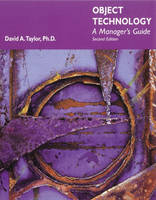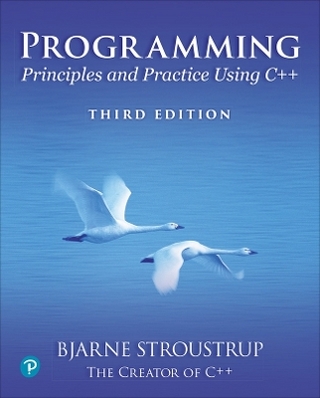
Object Technology
Addison Wesley (Verlag)
978-0-201-30994-2 (ISBN)
- Titel ist leider vergriffen;
keine Neuauflage - Artikel merken
"The first edition set a standard of excellence that has eluded all followers, and I have recommended it to my clients for years. The new edition is a gift to the field and should be required reading for all managers."
- Adrian J. Bowles, Ph.D., Vice President Giga Information Group
"One of the most readable introductions you will find. The new edition offers vital insights into the effective use of objects in business."
- Chris Stone, President Object Management Group
The first edition of Object Technology: A Manager's Guide is widely viewed as the classic introduction to this powerful computing concept. Object technology offers increased agility, significant time-to-market reduction, and the opportunity to exploit the potential of the World Wide Web by deploying globally distributed business systems. At a time when many of the world's largest companies are making the transition to object technology, David Taylor has updated his book to address the important issues facing the growth of object technology and to provide a glimpse into the future of this evolving paradigm. In updating this seminal work, David Taylor has retained the signature conciseness and,clarity of discussion that made the first edition a best-seller.
Object Technology: A Manager's Guide, Second Edition, covers the key terms, emerging concepts, and useful applications of objects. Managers, salespeople, engineers, software developers-anyone interested in understanding or implementing object technology-will find this a lucid introduction to the topic.
Highlights of this new edition include:
An explanation of how to use objects to create evolutionary software that rapidly adapts to changing business conditions, eliminating the need for most new application development.
An introduction to Java, and an explanation of how its use of message interfaces enables a new generation of portable, mix-and-match, Internet-enabled business objects.
An update on the state of object databases and extended relational databases, with guidelines for combining the two for optimal information storage.
An introduction to the new generation of object engines and how they combine storage and execution capabilities for maximum software integration.
0201309947B09102001
An internationally recognized authority on object technology, Dr. David A. Taylor has written numerous articles on business and technology, given keynote speeches at conferences, and served as the voice of authority for some of the world¿s leading companies. He is the author four books and coauthor of two others, including the acclaimed Object Technology, Second Edition: A Manager¿s Guide, (Addison-Wesley, 1998). Before founding Enterprise Engines, Inc., a company that develops supply-chain software, Dr. Taylor worked as a consultant helping Fortune 500 companies adopt object technology. 0201309947AB06252003
Acknowledgments.
Introduction.
Who Should Read This Book.
How to Read the Book.
What’s New in This Edition.
An Invitation to Interact.
1. Three Keys to Object Technology.
Why Objects?
Objects and Encapsulation.
Messages and Polymorphism.
Classes and Inheritance.
2. Objects: Natural Building Blocks.
Nature’s Building Blocks.
The Anatomy of an Object.
Constructing Composite Objects.
Designing Multilevel Systems.
3. Messages: Activating Objects.
The Anatomy of a Message.
Sending the Right Information.
The Power of Polymorphis.
4. Classes: Implementing Objects.
The Anatomy of a Class.
Defining Variables.
Specialization Hierarchies.
5. Objects as Software Components.
A New Industrial Revolution.
Making Software Components Work.
Building the Right Components.
6. Storing and Sharing Objects.
The Problem of Persistence.
A New Generation of Databases.
The Battle of the Generations.
7. Beyond Programs and Databases.
Integrating Procedures and Data.
The Evolution of Object Engines.
The End of Applications.
8. Objects for the Enterprise.
Distributing Objects.
From Objects to Agents.
Designing for Scalability.
9. The Adaptive Organization.
Understanding Adaptive Systems.
Increasing Organizational Adaptivity.
Adaptivity Through Objects.
Appendix: A Software Construction Primer.
Suggested Readings.
Glossary.
Index. 0201309947T04062001
| Erscheint lt. Verlag | 25.9.1997 |
|---|---|
| Verlagsort | Boston |
| Sprache | englisch |
| Maße | 229 x 179 mm |
| Gewicht | 449 g |
| Themenwelt | Informatik ► Software Entwicklung ► Objektorientierung |
| ISBN-10 | 0-201-30994-7 / 0201309947 |
| ISBN-13 | 978-0-201-30994-2 / 9780201309942 |
| Zustand | Neuware |
| Haben Sie eine Frage zum Produkt? |
aus dem Bereich


